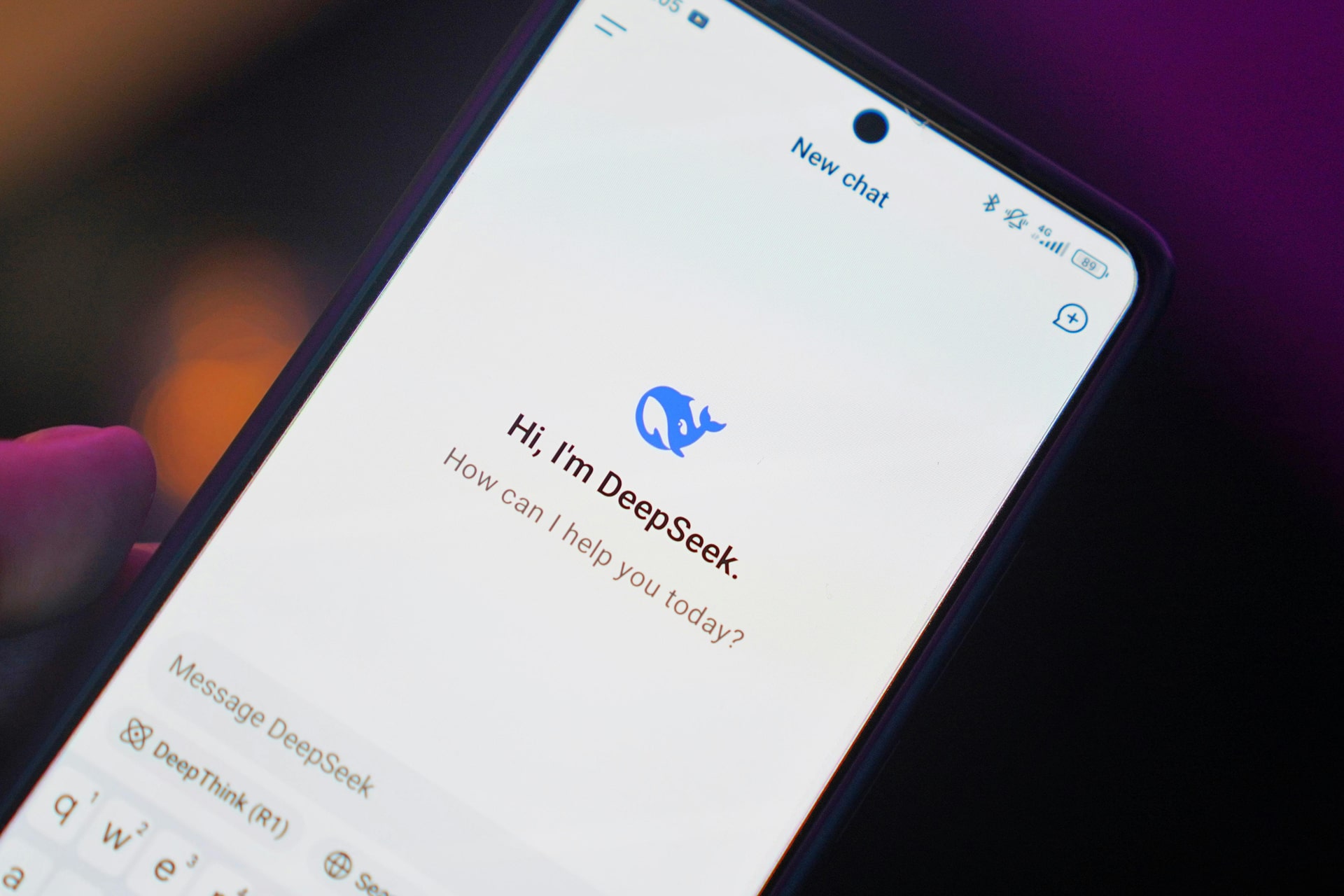Is DeepSeek next in line for a TikTok-like US ban?
21 hours ago
Chinese artificial intelligence startup DeepSeek sent shockwaves through the tech and investing worlds when it unveiled its ultra-cheap answer to ChatGPT. But scrutiny from Silicon Valley and Wall Street is not the only attention it has attracted.
While it is not yet clear what a powerful but cost-effective AI model would mean for an industry driven by raw computing power and heavy investments, lawmakers in the US and elsewhere are already calling for DeepSeek to be banned.
Earlier this month, two US congress members proposed a bipartisan bill to block DeepSeek from government devices, citing national security risks. The proposed bill followed similarly motivated moves in Australia, South Korea, and Taiwan.
“I’m a bit surprised the US is not the first to come out and ban DeepSeek,” said Xiaomeng Lu, director of geotechnology at the Eurasia Group think tank. “They are usually leading the charge in banning Chinese tech.”
The delayed response could be down to an unexpected source: Donald Trump.
When asked if he sees DeepSeek as a national security threat at a press gaggle in the Oval Office on February 7, the President said, “No.”
“AI … will be a lot less expensive than people originally thought. That’s a good thing. I view that as a very good development, not a bad development,” Trump added.
Despite being behind the initial attempt to shut down TikTok in the US in 2020, Trump paused the sell-or-ban law passed under the previous administration and gave the viral short video app an extra 75 days to find a solution.
It is too early to say, however, whether the president would similarly step in to spare DeepSeek from such a fate.
“Trump is having a pause on this [DeepSeek] issue, but I think overwhelmingly his advisors … are for further restriction on DeepSeek, and members of Congress are also advocating for that,” said Lu, adding that she expects some sort of US restrictions on DeepSeek down the road.
TikTok’s headwinds in the US could provide a preview of what awaits DeepSeek—or other Chinese tech companies—in the US.
In 2022, President Joe Biden signed an executive order banning the short video app from government devices. The sell-or-ban bill—formally known as the “Protecting Americans from Foreign Adversary Controlled Applications Act” (PAFACA)—was signed into law last April with bipartisan support. While best known for the TikTok provision, the law has also laid the legal groundwork for banning any applications from a “foreign adversary.”
Specifically, the law says that any applications determined by the president to present a significant threat to national security can also be banned.
“There are multiple routes to [ban DeepSeek],” Lu said. “Both the TikTok government devices ban and the later total ban have set legal precedents.”
Similar language used to describe TikTok’s alleged threat was used in the proposed bill to ban DeepSeek from government devices.
Representatives Josh Gottheimer, a Democrat from New Jersey, and Darin LaHood, a Republican from Illinois, said in the proposed “No DeepSeek on Government Devices Act” that the Chinese government’s ability to use the app for surveillance and misinformation are reasons to keep it away from federal networks—the same two concerns that led to the TikTok ban.
“The Chinese Communist Party has made it abundantly clear that it will exploit any tool at its disposal to undermine our national security, spew harmful disinformation, and collect data on Americans,” Gottheimer said in a statement. “We simply can’t risk the CCP infiltrating the devices of our government officials and jeopardizing our national security.”
DeepSeek did not respond to Nikkei Asia‘s requests for comment.
When asked about DeepSeek at a regular press conference on February 10, foreign ministry spokesperson Guo Jiakun said China “advocates open-source artificial intelligence technology” and “opposes the practice of … generalizing the concept of national security.”
A government device ban might just be the start. Other US lawmakers are already calling for a total ban not only on DeepSeek but also on other Chinese AI technologies. A bill proposed by Republican senator Josh Hawley on January 29 would bar the import of any AI technology from China due to national security concerns.
What exactly are the national security risks that DeepSeek is thought to pose?
According to Jason Corso, a computer science professor at University of Michigan, there are two layers of risks associated with AI models like DeepSeek: data security and limitations of the technology itself.
Where user data is accessed and processed is a sensitive issue. TikTok, for example, has spent billions investing in data centers in the US to store local users’ data yet failed to convince lawmakers that the Chinese government will not have access to it.
Gottheimer and LaHood’s proposed bill cites a clause in the DeepSeek app’s user agreement that includes the ability to share user data with China Mobile, a Chinese state-owned firm, as evidence that US user data could be accessed by Beijing. The DeepSeek app topped both Apple and Google’s app stores by number of downloads in recent weeks.
AI bias and “hallucination,” on the other hand, are technological risks. Hallucination refers to when AI generates incorrect or misleading answers, while bias occurs with models that are not adequately trained on robust data or are purposefully fed biased data.
Neither of those risks are unique to DeepSeek. US AI models such as OpenAI’s GPT or Google’s Gemini must grapple with the same issues.
“I’m not aware of someone who has gone through the open-source code line by line to check its security,” Corso said. “I don’t think there’s much substance to the national security threats in DeepSeek that are being discussed right now.”
The open-source nature of DeepSeek’s models, moreover, makes banning it more complicated if not impossible.
“The models are all uploaded and out there, you can’t really ban them,” said Yubei Chen, co-founder and chair of technical advisory board of Aizip, a Silicon Valley-headquartered edge AI startup. “What the US can do is ban the DeepSeek app or its website, but it will require building a Great Firewall.”
China’s Great Firewall refers to a combination of laws and technical measures that Beijing uses to enforce internet censorship.
And while banning DeepSeek or other Chinese AI might benefit AI developers from the US in the short term, it will reduce the US AI’s competitiveness in the long run, according to Chen.
“China is a very big and competitive market for AI. We need players like DeepSeek to push us in the US,” he added.
A total ban on DeepSeek would also need the cooperation from nearly all big tech companies. Major cloud providers in the US, including Microsoft’s Azure and Amazon’s AWS, have already added the Chinese company’s R1 model for their enterprise clients to use.
“I just don’t see the point really in doing that,” Coros said of a potential ban. “It sounds rather anti-American to limit access to openly available capabilities like that so they can’t be studied, can’t be explored.”
Open-source technologies have emerged as yet another front in the US-China tech decoupling. US lawmakers urged the Biden administration to limit China’s access to RISC-V, an open-source chip architecture, as part of the ongoing chip export controls.
Some, however, argue that neither technical difficulties nor a lack of substance in the national security risk claims will stop US lawmakers from banning DeepSeek.
“I think at this point it’s almost a secondary issue whether there’s national security concern or not,” said Lu. “It’s become a lightning rod for China hawks. They just found another exciting event to further their courses, whether it’s justifiable or not.”
This article first appeared on Nikkei Asia. It has been republished here as part of 36Kr’s ongoing partnership with Nikkei.
...Read the fullstory
It's better on the More. News app
✅ It’s fast
✅ It’s easy to use
✅ It’s free









.png)